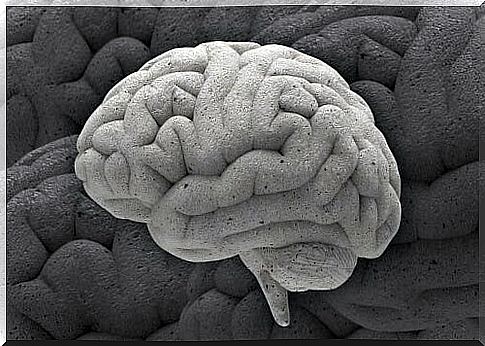Chronic Adversity Disrupts Dopamine Systems

Chronic adversity, that is, the difficulties, stress and vital complexities that one carries from childhood completely alter many of our neurological systems
Thus, something that has been known for years was that dimensions such as psychosocial stress maintained over time, as well as exposure to adverse events from childhood, increase the risk of the appearance of mental disorders. Now, beyond these clinical realities, there are also those more everyday behaviors with which many of us can feel identified.
We speak, for example, of our ability to commit ourselves to a goal. Also to be patient in resisting frustration or having the proper ability to handle uncertainty and failure. Likewise, we could also highlight many of the problems in our social and emotional relationships, factors all of which are often related to chronic stress.
All these dynamics are mediated by a very specific neurotransmitter, one that undoubtedly sounds quite familiar to us: dopamine. She is the one who regulates motivation, learning and even socialization processes …
Knowing that those stressful situations that we drag on for years can alter these dimensions is, without a doubt, as striking as it is worrying. Let’s know more data.

Chronic adversity leaves a neurological mark
Seneca said that in adversity it is often convenient to take a daring path. Now, when one has spent years or decades traveling through the universe of disappointment, mistreatment, failure, loss or those difficulties that end up overcoming us, there is no longer any impulse for daring.
What there is in reality is helplessness and it does not matter that they encourage us, that they tell us that everything will pass and that it is only a matter of changing our attitude. Because being exposed to constant psychosocial stress slows down the production of dopamine and this gives rise to different consequences, one of them being the difficulty to make changes, to apply improvement strategies.
Chronic adversity also makes any daily problem, no matter how small, is magnified and we feel overcome. They are as we see, situations that place us in a vicious circle. To understand it a little better, we will give an example: we have been in an emotional relationship for ten years where we suffer psychological abuse.
The expected thing in this circumstance would be to react, to end this relationship. However, not all people are capable of doing it. In addition to affective dependence, there may be this factor: a low level of dopamine due to stress, which makes us feel unable to react, to generate new behaviors.
Chronic adversity and mental illness
The relationship between chronic adversity and reduced dopamine production has long been known. However, its effects and what it can cause in humans, has been discovered very recently. It was this same month of November when Dr. Michael Bloomfield, from the Psychiatry Research Group at University College London, told us about something very relevant in a research work.
It has been seen that people exposed for years to psychosocial stress have a higher risk of developing mental illnesses. An example, traumatic childhoods increase the likelihood of the onset of schizophrenia. It is not cause effect but there is a risk. The same goes for depression.
These data published in the eLife magazine allow us to understand why trauma and psychological abuse result in a large number of people (not all) in mental illness and also in addictions.

How are the effects of chronic stress treated?
We know that the effects of chronic stress on the infant brain are immense. Elevated cortisol levels alter not only the release of dopamine, but structures such as the hippocampus, related to memory and emotions, are reduced.
Therefore, being clear that chronic adversity and psychosocial stress leave a dent in us … what can we do? There is no shortage of people who speak of the need to be resilient, to assume new attitudes. However, as we have well pointed out, many of these people present a profound helplessness, where they clearly feel incapable of generating changes.
In these cases, psychological therapy is essential. One approach that is current and that offers good results is EMDR therapy. It was the American psychologist Francine Shapiro who introduced her by treating soldiers suffering from post-traumatic stress disorder.
He presented it in 1989 in the Journal of Behavior Therapy and Experimental Psychiatry , and until now, it has the support of the American Psychiatric Association (APA) to treat this type of situation. Therefore, we must be clear that when we spend years dragging this chronic stress, it is necessary to seek specialized help. Sometimes we can’t handle it all alone and requesting support is a good step. The best ever.









